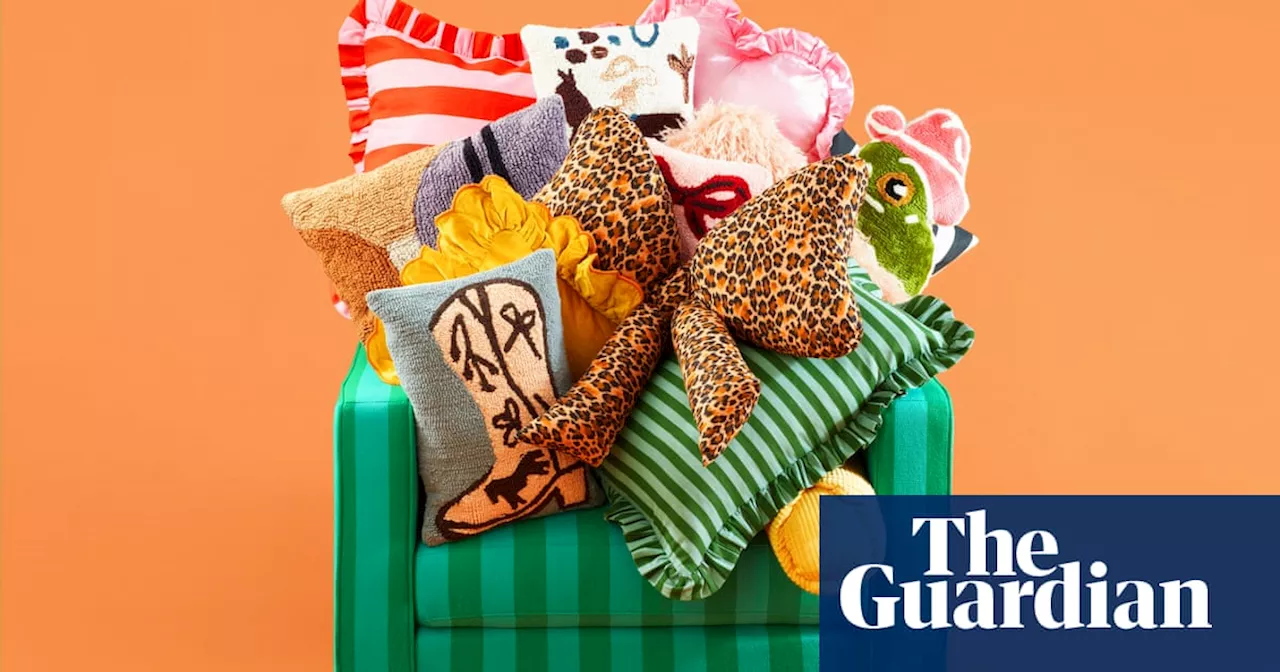The UK homeware market has exploded in recent years, with discount sellers witnessing the strongest growth. This trend, similar to the fast fashion industry, raises concerns about its impact on designers, factory workers, and the environment.
Walk into any big UK supermarket, and somewhere between the pasta and pet food you’ll find an aisle stacked with seductively stylish yet affordable homeware. From tableware to throws, cushions to coasters, objets d’art to duvet covers, the shelves will be teeming with everything you could possibly need to furnish your home – all in the latest shades and styles, and most costing less than the price of a takeaway.
Just a few years ago, this would have seemed strange, but with Asda, Sainsbury’s and Tesco all launching own-brand homeware ranges in the past decade, and the expansion of Lidl and Aldi, both known for their “middle aisle” bargains, purchasing homewares during the weekly shop has become the new normal. “If there were bits and bobs that could be bought, I would buy them,” admits Scottish former cheap homeware addict Carol Murdoch, 42. “You’d go shopping for a loaf of bread and come home with a candle. “It took doing my master’s in sustainability for me to actually look at it, and go: ‘We’re being completely conned here,’” says the former teacher, and director at an outdoor learning company. “As much as I now go, ‘Blooming heck!’, I did it – I bought homeware, all the time, without giving it a second thought.”The fast homeware industry has boomed in recent years, with discount sellers witnessing the strongest growth. The homeware market began to speed up in the years after the second world war, when brands such as Ercol – whose original designs are now highly sought-after as vintage pieces – began mass-producing modern, affordable furniture. By the 1970s, Ikea was expanding worldwide, opening its first UK store in 1987. Throughout the 1990s, production continued to grow. When Urban Outfitters arrived in the UK in 1998, it changed the game again; highly curated, trend-led homewares and gifts mingled with shoes and clothes. It was selling a lifestyle, and it wasn’t long before the rest of the high street caught on. Zara Home was launched in 2003. It may have been the first fast fashion chain to add a dedicated homewares line, but it was far from the last. In 2009, H&M Home entered the market, and by the 2020s Primark and hyper-fast online brands such as Boohoo, Pretty Little Things and Shein had followed suit. The similarities between the fashion and homewares industries is no coincidence. Interior designer Helen Gordon – who has since co-founded regenerative interior design and build studio, and sits on the British Institute of Interior Design’s sustainability committee – witnessed this first-hand as a retail buyer for high street homewares brands in the early 2000s. “It was very much about looking and understanding what fashion did, to make it the same,” she says. Although Gordon loved her job as a buyer, she grew increasingly uncomfortable with the hidden human cost. “You’re seeing people who only see their families for two weeks a year, when it’s Chinese new year, and they’re in a dormitory, lights go out at 9 o’clock, there’s no electricity after that. That’s their life,” she says. “It’s all ethical, quality standard, big companies I was working with, but it really hits you when you go there and you see it.” Six years into her career, Gordon’s misgivings about the high street’s business practices crystalised when the company she was working for went bust, with shocking consequences. “Suppliers were left with already made stock and substantial unpaid invoices. There was always a clear power dynamic, with us as the retailer often in the driving seat, but this imbalance became particularly evident during this difficult time,” she says. “Not long after we went into administration, one of our suppliers in the far east tragically took his own life. As the primary liaison, I felt a deep sense of responsibility; they’re our friends, our suppliers. I couldn’t help but reflect on whether the pressures of working with us had contributed to his situation. From that point on, I just thought: ‘I can’t keep doing this,” Gordon says
Fast Fashion Homeware Sustainability Ethical Consumption Consumerism
United Kingdom Latest News, United Kingdom Headlines
Similar News:You can also read news stories similar to this one that we have collected from other news sources.
 The Rise of the Broligarchy: How 'Bro' Became the Word of the YearThis article explores the rise of the 'broligarchy', a term coined to describe the growing influence of men, especially in the tech industry, in shaping American politics and culture. The text examines how the prefix 'bro' has evolved from its origins in bromance to become a powerful symbol of this new era, characterized by a sense of male camaraderie, dominance, and self-aggrandizement.
The Rise of the Broligarchy: How 'Bro' Became the Word of the YearThis article explores the rise of the 'broligarchy', a term coined to describe the growing influence of men, especially in the tech industry, in shaping American politics and culture. The text examines how the prefix 'bro' has evolved from its origins in bromance to become a powerful symbol of this new era, characterized by a sense of male camaraderie, dominance, and self-aggrandizement.
Read more »
 How Bournemouth became the Premier League’s latest model clubAndoni Iraola’s side host Liverpool on Saturday and look like one of the league leaders’ toughest away assignments
How Bournemouth became the Premier League’s latest model clubAndoni Iraola’s side host Liverpool on Saturday and look like one of the league leaders’ toughest away assignments
Read more »
 How a Difficult Child Became a Tech Titan: Bill Gates' Early DaysThe first volume of Bill Gates' memoirs delves into his childhood and the formative experiences that shaped his journey from a precocious and sometimes troublesome kid to a tech visionary. The book examines Gates's complex relationship with his parents, his struggles with social cues, his early passion for programming, and the pivotal role played by his education and friendships.
How a Difficult Child Became a Tech Titan: Bill Gates' Early DaysThe first volume of Bill Gates' memoirs delves into his childhood and the formative experiences that shaped his journey from a precocious and sometimes troublesome kid to a tech visionary. The book examines Gates's complex relationship with his parents, his struggles with social cues, his early passion for programming, and the pivotal role played by his education and friendships.
Read more »
 My 8½ hour flight became a 19-hour endurance testA mechanical issue saw my flight return to Sydney shortly after take-off. Understandable, but what happened next was less than satisfactory.
My 8½ hour flight became a 19-hour endurance testA mechanical issue saw my flight return to Sydney shortly after take-off. Understandable, but what happened next was less than satisfactory.
Read more »
 No running water, no escape, but this trip became my idea of paradiseI still can’t believe we did this – camping on a remote coral cay. We cooked our own meals, slept in basic tents, spent days conducting “science” experiments. Now I realise it was brilliant.
No running water, no escape, but this trip became my idea of paradiseI still can’t believe we did this – camping on a remote coral cay. We cooked our own meals, slept in basic tents, spent days conducting “science” experiments. Now I realise it was brilliant.
Read more »
 No running water, no escape, but this trip became my idea of paradiseI still can’t believe we did this – camping on a remote coral cay. We cooked our own meals, slept in basic tents, spent days conducting “science” experiments. Now I realise it was brilliant.
No running water, no escape, but this trip became my idea of paradiseI still can’t believe we did this – camping on a remote coral cay. We cooked our own meals, slept in basic tents, spent days conducting “science” experiments. Now I realise it was brilliant.
Read more »
